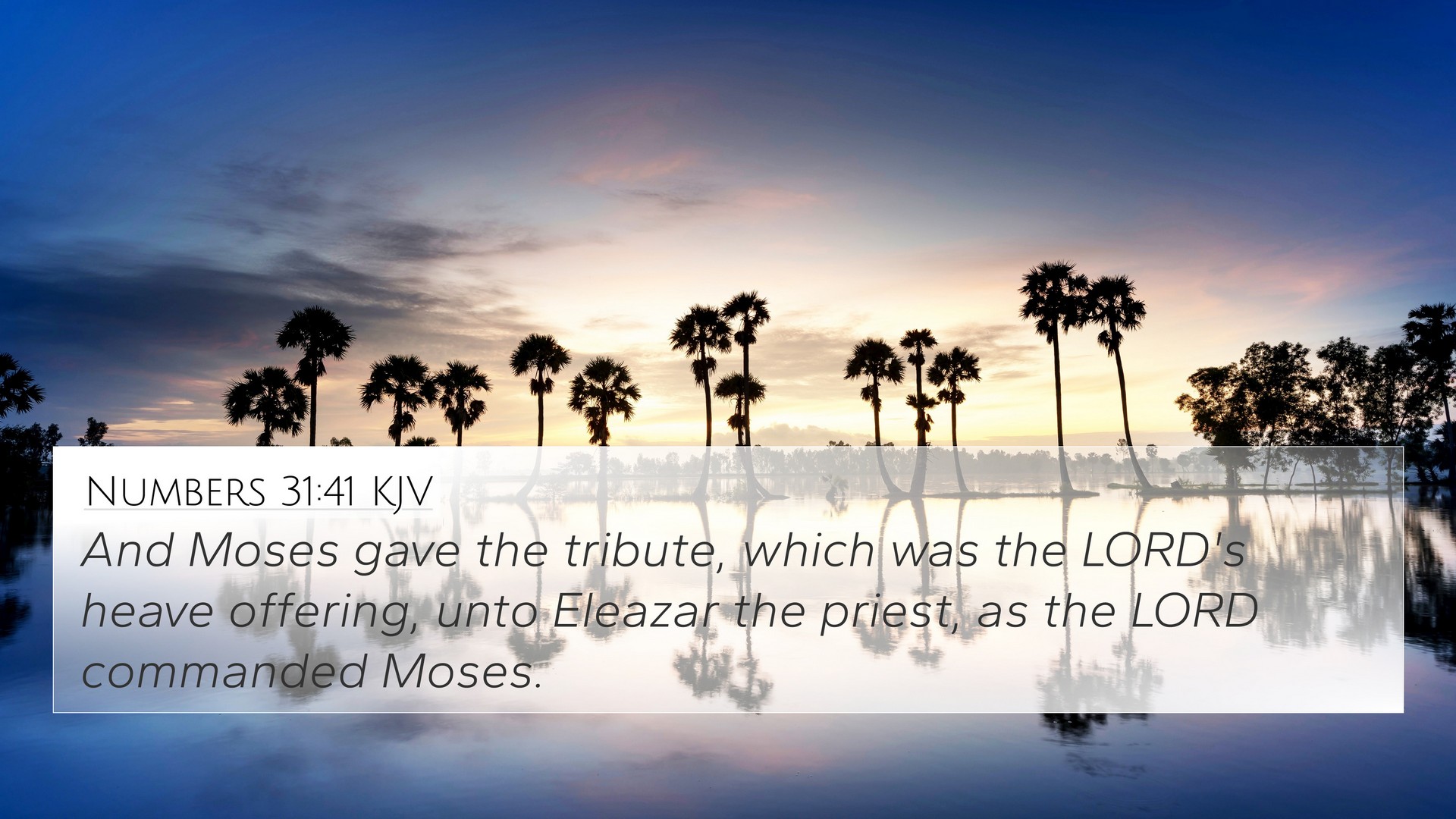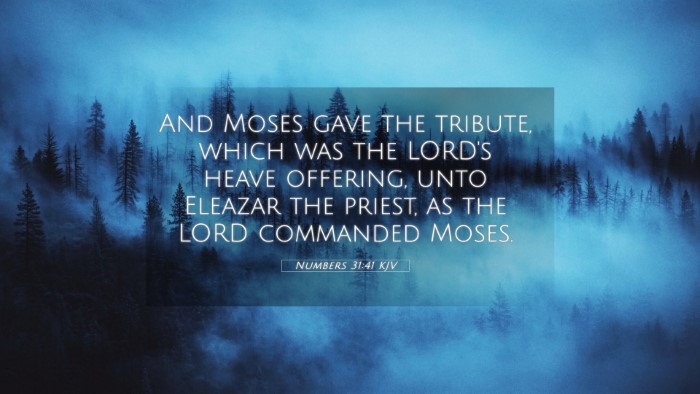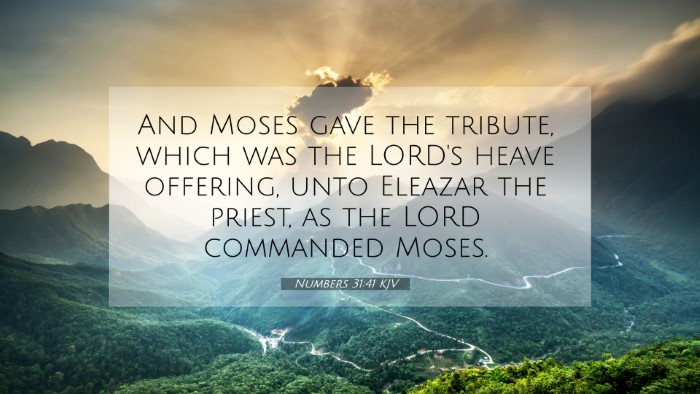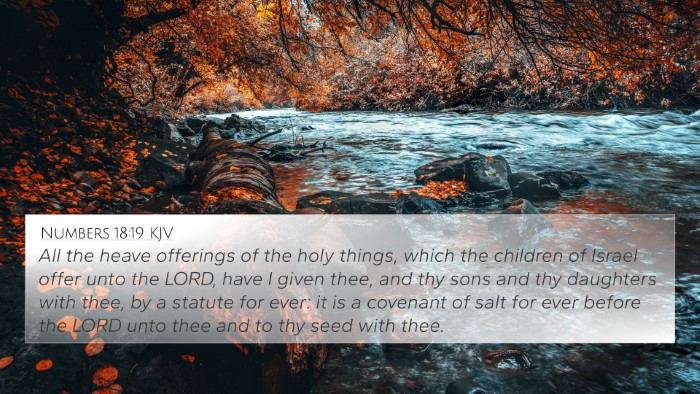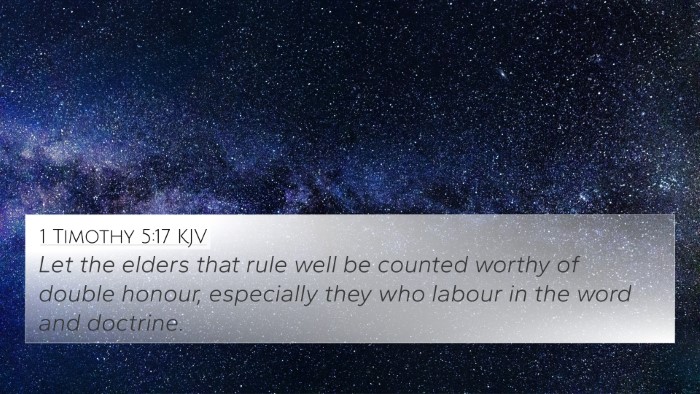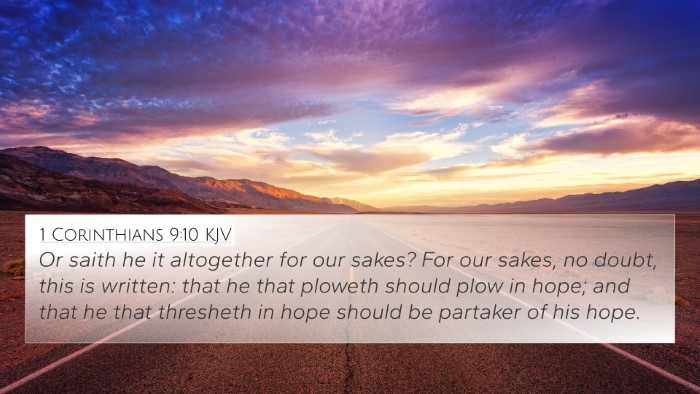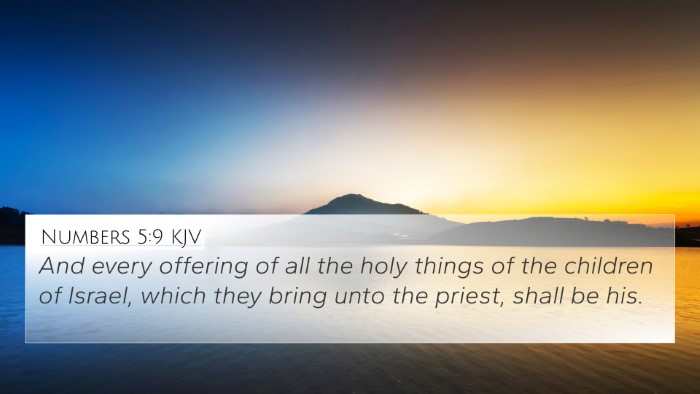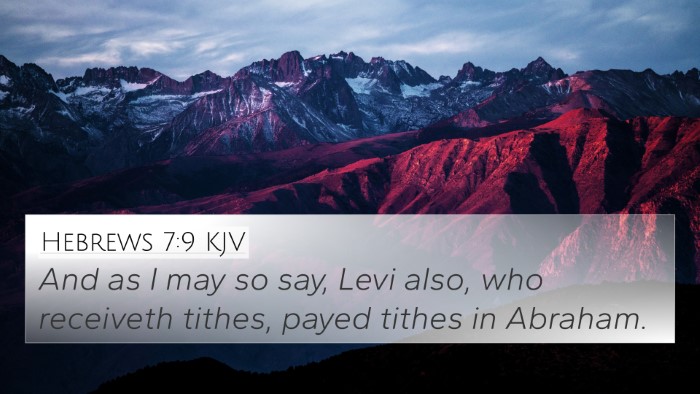Understanding Numbers 31:41
Numbers 31:41 states: "And Moses gave the tribute, which was the Lord’s heave offering, to Eleazar the priest, as the Lord commanded Moses."
This verse reflects the implementation of God's commands regarding offerings and tributes, emphasizing obedience and worship.
Verse Meaning and Insights
The significance of Numbers 31:41 can be understood through insights from public domain commentaries, which reveal deeper themes of obedience, God's holiness, and the proper management of resources dedicated to the Lord.
Key Themes
- Obedience to God's Commands: Moses’ action reflects the need for adherence to divine instructions, promoting a model of faithful leadership.
- Duty of the Priesthood: Eleazar’s role highlights the importance of the priestly office in administering offerings to God.
- The Sanctity of Offerings: This verse underscores how offerings are treated as sacred and to be delivered as commanded by God.
Commentary Insights
Matthew Henry: Henry emphasizes the importance of setting aside a portion for God from what has been gained through labor or conflict, reminding readers of the covenant relationship between God and His people.
Albert Barnes: Barnes points out that the tribute signifies a recognition of God's sovereignty and providence, illustrating how offerings are essential in maintaining a household of faith.
Adam Clarke: Clarke discusses how the heave offering served not only as a financial contribution but also as a symbolic gesture of devotion to God, promoting a sense of community and gratitude amongst the Israelites.
Bible Cross-References
Understanding Numbers 31:41 also benefits from cross-referencing with other Scriptures. The following verses are key for comparative analysis:
- Exodus 30:13-15: Discusses the half-shekel tribute that is given to the Lord.
- Leviticus 27:30: Addresses the tithing of crops and land as offerings to God.
- Deuteronomy 14:22-23: Emphasizes the importance of setting aside a tithe for one's spiritual needs.
- 1 Samuel 15:22: Highlights that obedience is better than sacrifice, resonating with the necessity of holiness in offerings.
- Romans 12:1: Calls believers to present themselves as living sacrifices, parallel in spirit to the offerings commanded here in Numbers.
- Malachi 3:10: Encourages bringing the whole tithe to the storehouse, promising blessings in return.
- Matthew 23:23: Jesus addresses the Pharisees, emphasizing the weightier matters of the Law tied to justice and mercy alongside tithing.
Connections Between Bible Verses
The thematic connections between Numbers 31:41 and other biblical texts illustrate the continuity of God's expectations regarding offerings and worship.
By exploring these links, believers can gain a richer understanding of biblical principles governing stewardship, worship, and obedience.
Linking Bible Scriptures
Cross-referencing biblical texts provides valuable insights into God's character and His desires for His people.
For example, the connection to Romans 12:1 indicates that all believers are called to a life of sacrifice and service, echoing the sentiments found in the sacrificial system of the Old Testament.
Conclusion
In conclusion, Numbers 31:41 serves as a powerful reminder of the essential nature of obedience to God's commands, particularly in the context of offerings.
Through careful study and cross-referencing with other Bible verses, one can better appreciate the intricate relationship between faithfulness, stewardship, and worship in the life of a believer.
